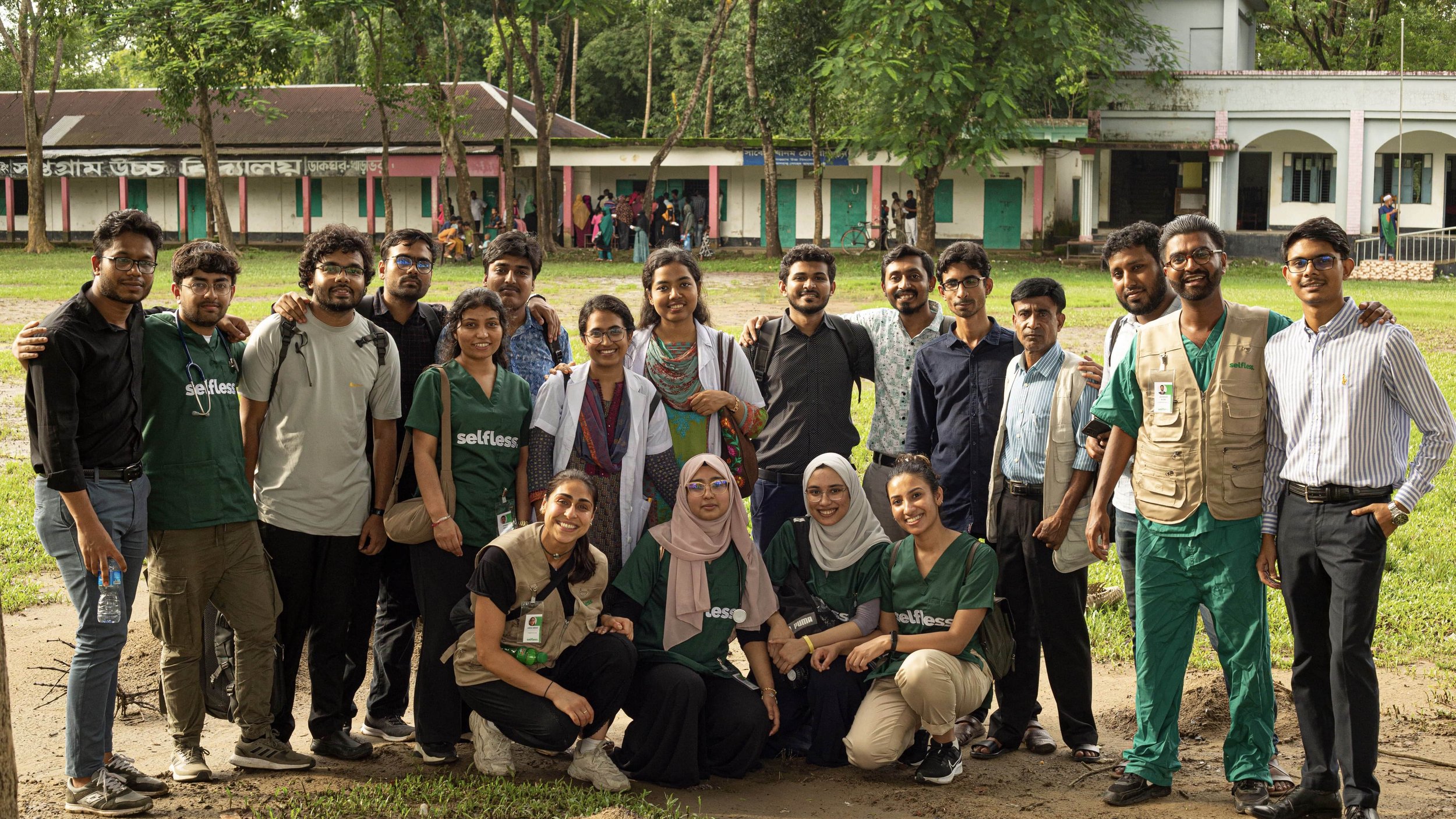
Impact
Almost 70% of Bangladesh’s 169m population rely on the primary healthcare system for treatment and care.
-
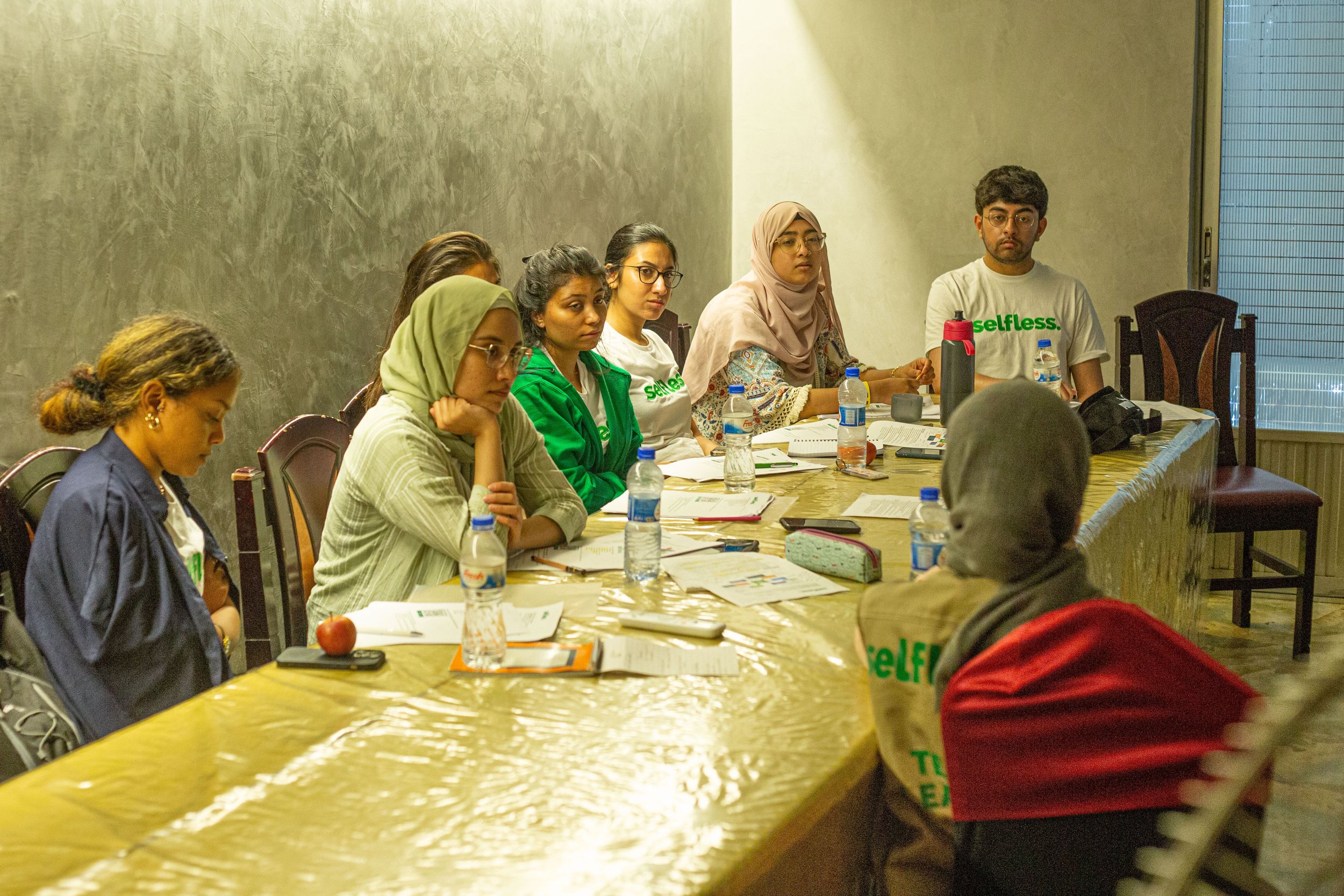
Serious shortages and the unequal distribution of qualified health workers and clinical facilities are major obstacles in providing accessible healthcare for all: only 25% of healthcare workers serve rural areas, despite 70% of the population living in these areas
We are committed to directly supporting high-impact, sustainable solutions which address the most urgent local health issues while creating future generations of global health leaders. Since 2008, we have supported local healthcare leaders to deliver their own rural public health outreach programmes and have worked with them to implement innovative evidence-based interventions that have improved local access to high quality care for those in rural communities and reduced healthcare inequality in Bangladesh.
-

Our ongoing programmes in Bangladesh:
Upahar: Low-cost baby bundles – evidence-based interventions to make pregnancy safer and improve outcomes for mother and baby.
Porishkar: Mobile cataract service to – improving eye health and restoring sight as well as livelihoods by enabling people to work and provide for their families.
Brush with Kindness: Dental hygiene education programme – to improve oral health and prevent oral disease in rural areas where little or no access to a dentist.
Global Health Leadership Programme: Immersive programme – designed to improve chosen delegates understanding of healthcare in Bangladesh and increase leadership competence for global health. Applications for GHLP 2024 open Friday 6th October 2023.
As of October 2023
Making pregnancy safer for new mothers and their babies in rural Bangladesh.
The Challenge
Poor maternal health is a global issue – 99% of maternal deaths occur in developing countries and each day 830 women die due to preventable causes related to childbirth or pregnancy.
One of the most important health issues in Bangladesh - three women die every hour at the time of childbirth. Only 6 in 10 deliveries are carried out under the care of a skilled health professional, one of the lowest rates in the world.
Added to the challenges of poor quality of care at childbirth, is poor uptake of antenatal and postnatal care, especially in rural areas.
And malnutrition is a major concern both for new mothers and their babies.
Although there are maternal health programmes these are not working due to:
Lack of evidence for intervention;
Lack of collaboration with local healthcare infrastructure and organisations; and
They are not patient-centred
Our Response: Upahar
Small Bag, Big Impact - Putting the essentials for safer childbirth in one bag
Designed to help new mothers in rural areas of Bangladesh, where healthcare facilities and professionals are often hard to reach.
Inspired by the Finnish Baby Box, Upahar (Bangla: Gift) is a low-cost baby bundle that contains evidence-based interventions to make pregnancy safer for both mother and child.
The programme engages mothers early on in pregnancy and conveys vital antenatal care messages to them via mobile phone.
Mothers who full participate in the programme receive a baby bundle that consist of key items to give their baby the best possible start to life.
How it works
Step 1
Mother discovers that she is pregnant
Step 2
Travels to local clinic or distribution partner
Step 3
Receives Upahar in exchange for mobile phone number
Step 4
Educated on the contents of Upahar at the clinic and remains in contact via mobile
Step 5
Safer and healthier pregnancy
Three women die every hour at the time of child- birth in Bangladesh.
Why are current maternal health programmes not working
-
1) Lack of evidence base for intervention
-
2) Lack of collaboration with local healthcare infrastructure
-
3) Not patient-centred
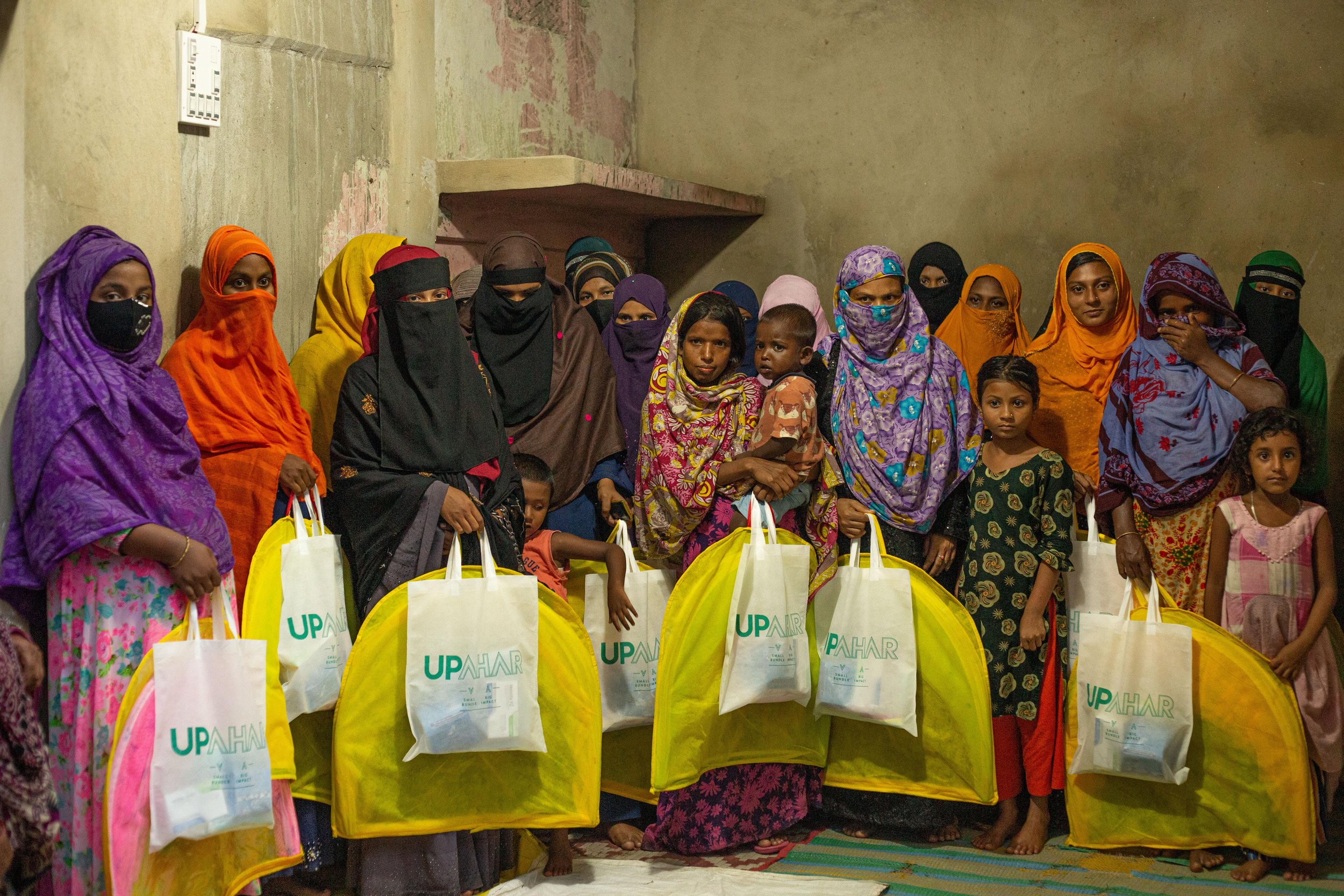
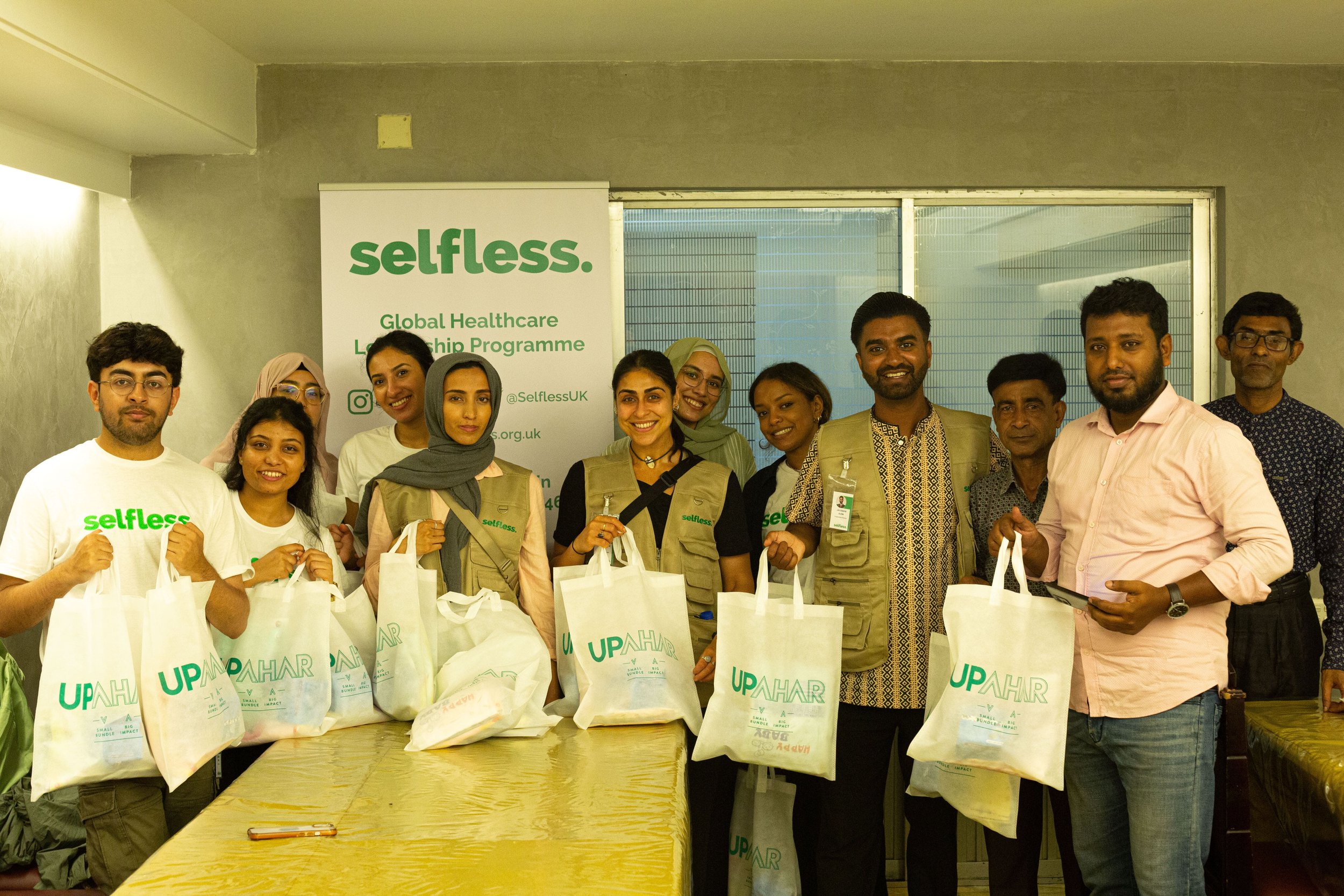

Each bundle contains evidence-based interventions to improve outcomes for the mother and baby.
Every piece of our bundle is recommended by the WHO to reduce child mortality.
-
Neonatal mortality increases by approximately 80% for every one degree celsius decrease in body temperature.
-
In Africa, bed nets can reduce all causes of deaths by 20% in under 5s
-
Given to mothers to prevent maternal anaemia, puerperal sepsis, low birth weight and preterm birth
-
To prevent unhygienic postpartum practices that can lead to infections and possible infertility.
-
Visual aids help and encourage breastfeeding. WHO recommends that all babies should be exclusively breastfed from birth until six months.
-
Better communication results in better education and early detection of risks in pregnancy.
The Impact
Upahar has supported 200+ mothers through safer neonatal care.
What underpins Upahar’s success
-
People-centred design
Tried, tested and developed in collaboration with mothers to meet their needs.

-
Empowering
We educate mothers so they can take control of their pregnancies.

-
Accessible
We harness technology and work with local providers to make better healthcare universally and easily accessible.

-
Affordable
We have curated impactful, scalable and low-cost interventions.

Ayesha’s Story
"I lived in fear about my pregnancy. I couldn't afford any care, but I also wanted to know that someone cared about me and my unborn child. it is a small gift but the people who gave it to me have big hearts."
Porishkar
Tackling poverty and overcoming preventable blindness in rural Bangladesh
-

What is Porishkar?
Porishkar means ‘clear’ in Bengali. This is how patients describe their vision after a simple cataract procedure.
Our project focuses on identifying and supporting families where the main ‘bread-winner’ is affected by cataract and is unable to work leading to whole families falling into poverty.
We utilise low-cost screening and partnerships with high volume eye hospitals to keep costs down with good outcomes for patients.
-

Almost 1 in 10 people in Bangladesh have a form of avoidable blindness.
What happens when you can’t see?
Loss of employment
Social stigma
Marital exclusion
Further poverty
-

One of the leading causes of avoidable blindness is a cataract.
Every year there is thought to be 130,000 new cataract cases in Bangladesh.
-
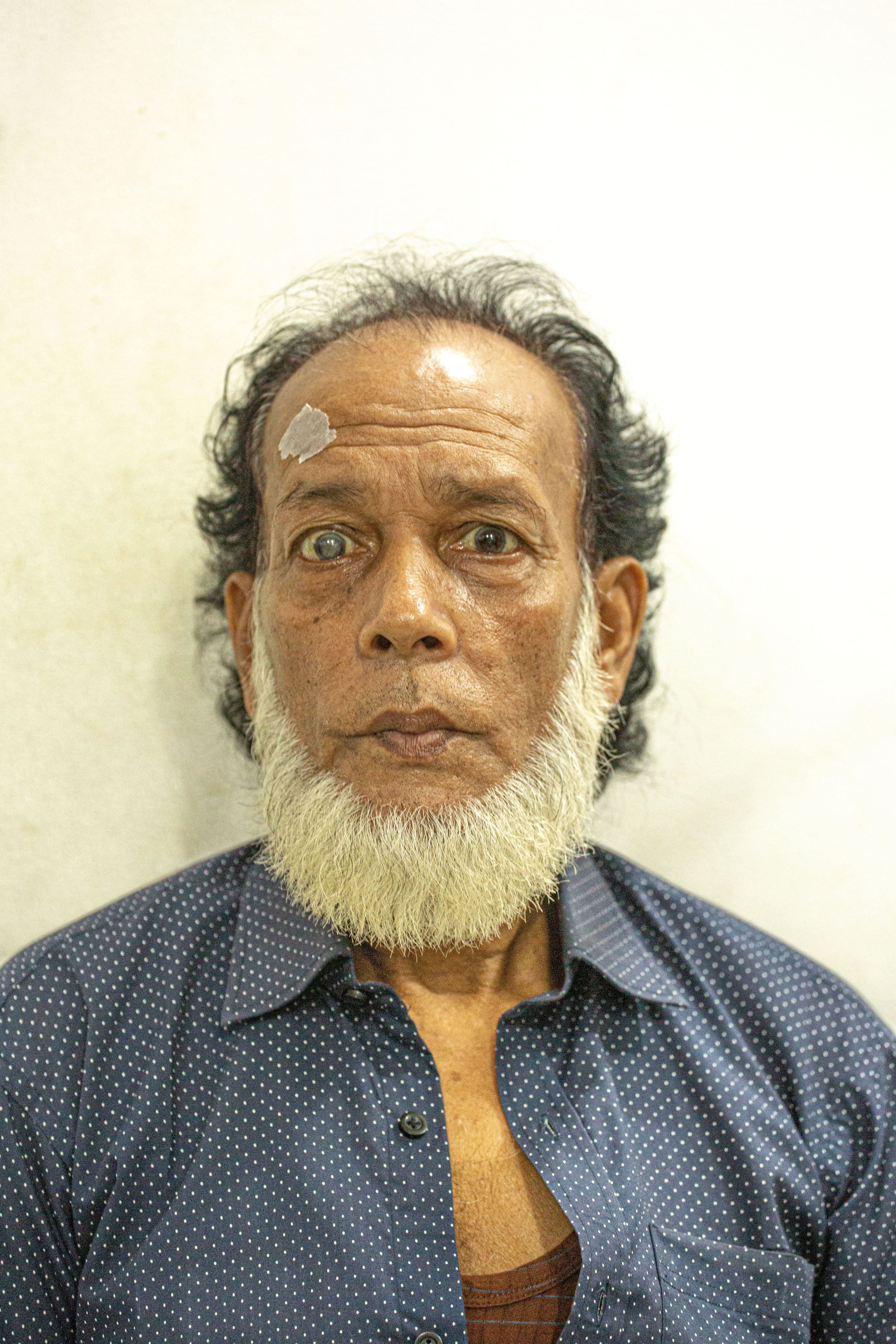
How does it work?
1. Screening assesses a rural village
2. Potential patients are noted on our database
3. Any other ophthalmic conditions are referred to specialist
4. Transport to partner eye hospitals – high volume, lost cost centres.
5. Cataract removal and lens replacement occurs in partner eye hospitals
6. Post operative checks then discharge
The Challenge
Bangladesh has one of the highest rates of ocular morbidity in the world. Almost 10% of people in Bangladesh have a form of avoidable blindness
One of the leading causes of avoidable blindness is a cataract. Every year, there are approximately 130,000 new cataract cases in Bangladesh.
Bangladeshi eye care system suffers from both a lack of human resources and poor accessibility, especially in rural areas.
Not being able to see leads to widening socioeconomic issues including:
Loss of employment and income
Social stigma
Marital exclusion
Further poverty
Our Response: Porishkar
Early, Rapid Access and Intervention – Mobile cataract surgery service
Porishkar means ‘clear’ in Bengali. This is how patients describe their vision after a simple cataract procedure.
Our project focuses on identifying and supporting families where the main ‘bread-winner’ is affected by cataract and can't work leading to whole families falling into poverty.
We use low-cost screening and partnerships with high volume eye hospitals to keep costs down, while maintaining good outcomes for patients.
How it works:
Step 1. Screening assesses patients in rural villages
Step 2. Potential patients are captured in Selfless' database
Step 3. Any other ophthalmic conditions are referred to specialists
Step 4. Transport to partner eye hospitals – high volume, lost cost centres.
Step 5. Cataract removal and lens replacement occurs in partner eye hospitals
Step 6. Post-operative checks then discharge
The Impact
Porishkar has restored sight and helped 200+ people back into work
Harun's story: Harun, a 55-year-old auto-rickshaw driver with a small family of three children in primary education, developed a cataract in his left eye 2 years ago. As his sight worsened he was unable to see the roads clearly so he stopped working which has a huge impact on his ability to feed his family and educate his children. Harun was the first patient to go through the Porishkar programme. He’s now back to work after recovering from his free cataract procedure.
What underpins Porishkar’s success?
People-centred design: Tried, tested and developed in collaboration with local partnerships.
Empowering: Help restore sight to those who need it most, restoring their livelihoods, their ability to work and provide for their families.
Accessible: Screening and triaging by paramedics equipped with the skills and tools to examine for cataracts, targeting patients who would otherwise struggle to access healthcare.
Affordable: Patients who are identified are referred to a local surgeon for a free sight-restoring procedure.
A Brush with Kindness
Improving Oral Health in rural Bangladesh
-

What is A Brush with Kindness?
Periodontal disease is one of the common oral diseases and can be prevented by maintaining the individual’s good oral health behaviour like tooth cleaning with a toothbrush and toothpaste, inter-dental cleaning with dental floss, and other oral hygiene measures
The World Health Organization suggested that school oral health promotion activities are effective in preventing oral diseases and promoting oral health among school children.
This project comprises of lecturing with interactive talk, demonstration and provision of toothbrush to school aged children in rural Bangladesh.
-

Total productivity losses due to 5 oral diseases in Bangladesh is US$ 637 million
The World Health Organisation (WHO) reports the prevalence of oral disease burden in Bangladesh is 43.5% untreated caries of deciduous teeth in children between 1-9 years.
The Challenge
Oral disease is a major health issue globally and locally in Bangladesh. It affects 3.9 billion people worldwide, with 43.5% prevalence of cavities in children aged 1 – 9 in Bangladesh.
Cavities (tooth decay), although treatable, are one of the greatest unmet health treatment needs. Untreated cavities can cause pain and infections that may lead to problems with eating, speaking, playing, and learning.
Periodontal disease is one of the common oral diseases. It can be prevented by maintaining the individual’s good oral health behaviour like tooth cleaning with a toothbrush and toothpaste, inter-dental cleaning with dental floss, and other oral hygiene measures
However, children in Bangladesh, particularly in rural areas, don’t have access to dentists and often lack knowledge and resources to correctly care for their teeth.
Our Response: A Brush with Kindness
Preventing oral disease – Dental hygiene education
The World Health Organization suggests that school oral health promotion activities are effective in preventing oral diseases and promoting oral health among school children.
This project comprises of lecturing with interactive talks, demonstrations and provision of toothbrushes and toothpaste packs to school-aged children in rural Bangladesh.
Dental/medical students visit junior schools in the Sylhet district to teach students the importance of dental hygiene including how to effectively brush their teeth. Each child is then gifted a toothbrush to keep
Students also support local professionals to run dental hygiene camps in which free examinations are carried out, and toothbrushes and toothpaste packs are distributed.
How it works:
Step 1. Dental/medical students visit junior schools in the Sylhet district teach students the importance of dental hygiene including how to effectively brush their teeth.
Step 2. Dental/medical students and professionals run dental hygiene camps. Free examinations are carried out and toothbrushes and toothpaste packs are distributed
The Impact
Provided oral health education to 1000+ school-aged children
What underpins A Brush with Kindness’ success?
People-centred design: Tried, tested and developed in collaboration with local schools.
Empowering: Educates children about the importance of dental hygiene and teaches and equips them with what they need to maintain good oral health behaviours.
Accessible: Our dental hygiene programme are delivered in local junior schools.
Affordable: Low-cost health promotion intervention.
Global Health Leadership Programme
Find out more about our CPD-accredited programme here. Here’s what our delegates said:







